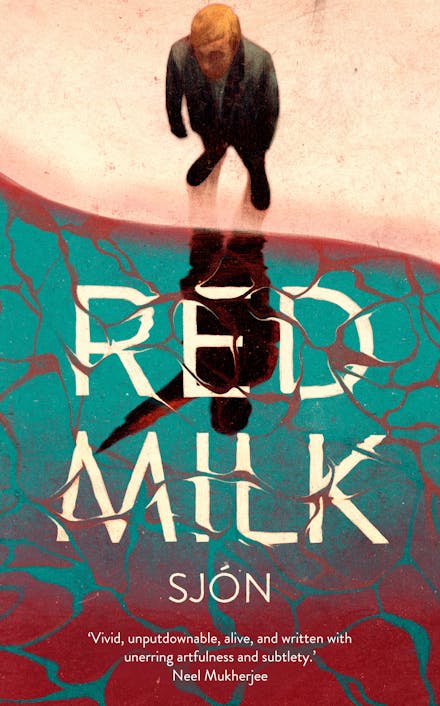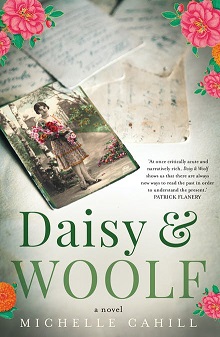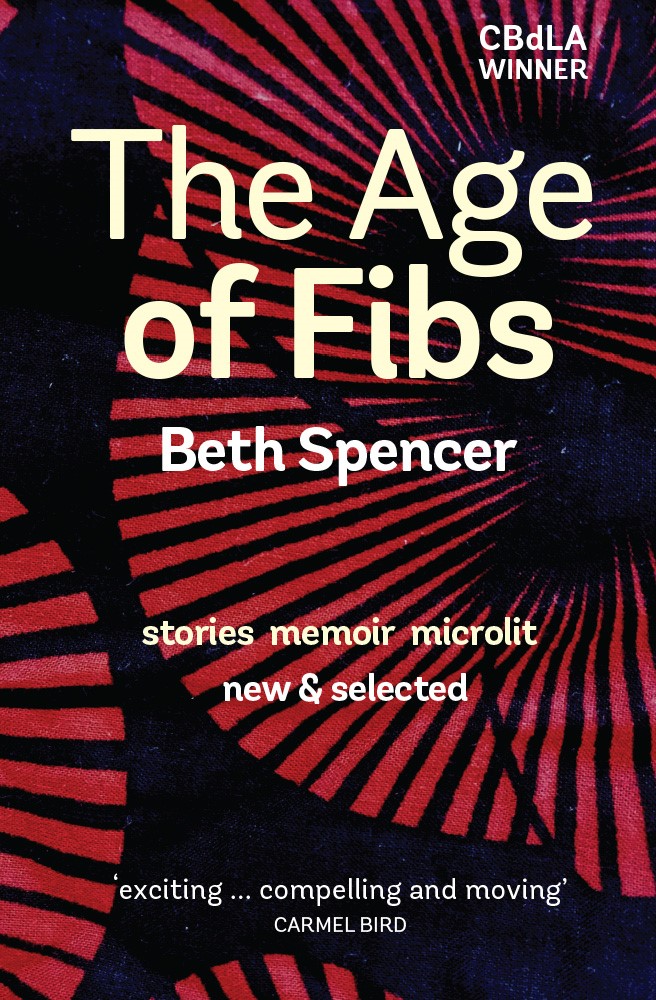 There has been much made of Juice being a departure for Winton and there’s no denying that this is a different setting to most of his work: the small towns of present day Western Australia. This is set in the ravaged future, but the writing is classic Winton. The location does seem to still be WA, with a rich, if tortured, setting with human relationships at its core. These are mostly familial: a boy and his mother, a child and her carer, two parents and a young child – all recognisable and all rich with the complexities of those relations under the duress of environmental disaster.
There has been much made of Juice being a departure for Winton and there’s no denying that this is a different setting to most of his work: the small towns of present day Western Australia. This is set in the ravaged future, but the writing is classic Winton. The location does seem to still be WA, with a rich, if tortured, setting with human relationships at its core. These are mostly familial: a boy and his mother, a child and her carer, two parents and a young child – all recognisable and all rich with the complexities of those relations under the duress of environmental disaster.
Tag: literary fiction
A review of Outcaste by Sheila James
 Most scenes in the novel achieve several things at once, developing the characters key to the complex family story while also showing the caste system and the political realities of the day. When Gandhi comes to Korampally to speak about the dangers of Hyderabad joining Pakistan, he addresses the peasant untouchables, with whom he’d lived for a while in 1934.
Most scenes in the novel achieve several things at once, developing the characters key to the complex family story while also showing the caste system and the political realities of the day. When Gandhi comes to Korampally to speak about the dangers of Hyderabad joining Pakistan, he addresses the peasant untouchables, with whom he’d lived for a while in 1934.
A review of Passenger by Cormac McCarthy
 In the interest of full disclosure (and how seldom we hear of disclosure that is not full), I didn’t like the authorial voice of The Passenger from the first page. But we’ll come to Alicia and her troubles later. To continue with the discussion of signifiers, here we have an author steeped in Americana: the American story, as understood by America, and the cultural signifiers best known by Americans.
In the interest of full disclosure (and how seldom we hear of disclosure that is not full), I didn’t like the authorial voice of The Passenger from the first page. But we’ll come to Alicia and her troubles later. To continue with the discussion of signifiers, here we have an author steeped in Americana: the American story, as understood by America, and the cultural signifiers best known by Americans.
A review of Prétend by Arielle Burgdorf
 I love this book. It is located at the crossroads (if not terminus) of cultural appropriation, mistranslation, gender and identity fluidity. Carrère’s fake identity novel, the brilliantly glib aspersions of Nightwood — all this and more are revivified in Arielle Burgdorf’s masterful take on identity in an increasingly amorphous world.
I love this book. It is located at the crossroads (if not terminus) of cultural appropriation, mistranslation, gender and identity fluidity. Carrère’s fake identity novel, the brilliantly glib aspersions of Nightwood — all this and more are revivified in Arielle Burgdorf’s masterful take on identity in an increasingly amorphous world.
A review of Red Milk by Sjón
 Though I can understand, and perhaps even entertain, Sjón’s intentions regarding his latest work, I think that both the writing style and characterization seem a bit too simplistic, falling flat in the end and leaving the reader feeling that this could be much more intriguing if the Icelandic wordsmith followed his traditional recipe, creating sentences that urge you to read them aloud in order to bask in their brilliance.
Though I can understand, and perhaps even entertain, Sjón’s intentions regarding his latest work, I think that both the writing style and characterization seem a bit too simplistic, falling flat in the end and leaving the reader feeling that this could be much more intriguing if the Icelandic wordsmith followed his traditional recipe, creating sentences that urge you to read them aloud in order to bask in their brilliance.
A review of Tom Lake by Ann Patchett
 Chekhov, however, is writing about class changes in the Russia of his day, so Our Town, an American work, seems more likely to be an influence on Patchett than The Cherry Orchard” is. Like Thornton Wilder, Ann Patchett shows the value of rural life, family and community, but, by presenting Lara’s earlier life, she acknowledges the significance of the wider world in making her knowledgeable and open-minded. Tom Lake is not as parochial as Our Town.
Chekhov, however, is writing about class changes in the Russia of his day, so Our Town, an American work, seems more likely to be an influence on Patchett than The Cherry Orchard” is. Like Thornton Wilder, Ann Patchett shows the value of rural life, family and community, but, by presenting Lara’s earlier life, she acknowledges the significance of the wider world in making her knowledgeable and open-minded. Tom Lake is not as parochial as Our Town.
Fiction as Palimpsest: The Revelatory Lie: Catherine Gammon’s The Martyrs, the Lovers
 And so we enter into the fiction with both curiosity and fascination, which Gammon masterfully both milks and sustains as she gives us the details, enough to keep us guessing, like voyeurs, like amateur sleuths, as though we might deduce the truth from her fiction—it’s seduction and frankly ingenious.
And so we enter into the fiction with both curiosity and fascination, which Gammon masterfully both milks and sustains as she gives us the details, enough to keep us guessing, like voyeurs, like amateur sleuths, as though we might deduce the truth from her fiction—it’s seduction and frankly ingenious.
A review of Bad Art Mother By Edwina Preston
 There is so much about this book that is compelling. It manages to be both funny and tragic at the same time, without stereotypes or polemic. Though there are moments of bad behaviour on the part of pretty much every character, nothing is over-simplified. There are as many different ways to create art, from Jo’s food or charity work, to the Mirka Mora styled murals of Jo’s waitress Rosa, or the ikebana flower arrangements of Mrs Parish, as there are ways to be a partner, a parent, or a patron.
There is so much about this book that is compelling. It manages to be both funny and tragic at the same time, without stereotypes or polemic. Though there are moments of bad behaviour on the part of pretty much every character, nothing is over-simplified. There are as many different ways to create art, from Jo’s food or charity work, to the Mirka Mora styled murals of Jo’s waitress Rosa, or the ikebana flower arrangements of Mrs Parish, as there are ways to be a partner, a parent, or a patron.
A review of Daisy & Woolf by Michelle Cahill
 Daisy & Woolf is a rich, complex book that blurs binaries and boundaries, provoking big questions around art, parenting, love, privilege, colonisation, and creativity.The narrative flows quickly, driven by its dual protagonists, with the book unfolding its denser meaning later, in the shared collaborative space between reader and writer.
Daisy & Woolf is a rich, complex book that blurs binaries and boundaries, provoking big questions around art, parenting, love, privilege, colonisation, and creativity.The narrative flows quickly, driven by its dual protagonists, with the book unfolding its denser meaning later, in the shared collaborative space between reader and writer.
A review of The Age of Fibs by Beth Spencer
 It is always both true and fictive, and like dreams, pieced together from a grab-bag of images and turned into stories that reflect the themes being explored. The Age of Fibs picks up on this uncertainty beautifully and works with it, allowing for openness, complexity, and fragmentation, while still keeping the coherency of the story intact.
It is always both true and fictive, and like dreams, pieced together from a grab-bag of images and turned into stories that reflect the themes being explored. The Age of Fibs picks up on this uncertainty beautifully and works with it, allowing for openness, complexity, and fragmentation, while still keeping the coherency of the story intact.